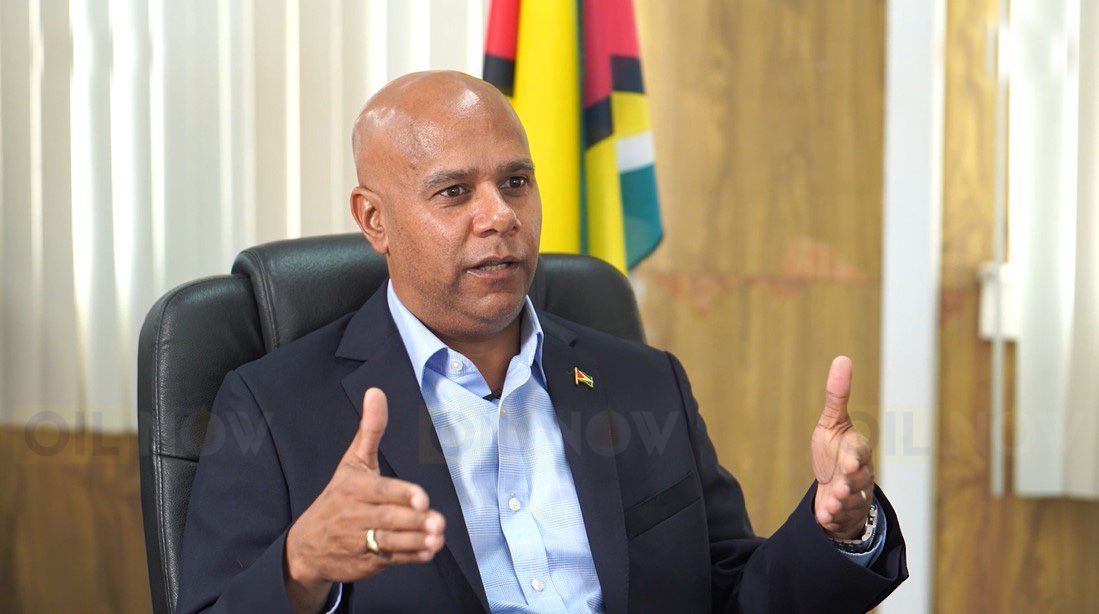Former President of the Georgetown Chamber of Commerce and Industry (GCCI), Timothy Tucker, is heavily criticizing calls to renegotiate the contract Guyana entered with ExxonMobil and the Stabroek Block co-venturers. Tucker pointed out that arbitrary decisions to change the nature of a deal after it’s been agreed to by all parties, is bad for business and the country’s image. The businessman said that going back on one’s word in such a manner, is akin to having a “low-life mentality”.
“We cannot do business as two-bit hustlers. We have to do business as a business community. You have to be able to do business as a country that says to you, ‘Look, we are here to do business, we are legitimate’,” Tucker said in an exclusive interview with OilNOW. “We must be able to say ‘Look, our word is our bond… What you see is what you get.’ Not when it becomes profitable, we suddenly change.”
Tucker said the GCCI, the representative body for businesses in the capital, has an agricultural committee that is actively teaching farmers the importance of sticking to their commitments. He said if a business makes a deal to buy a farmer’s peppers at $300 per pound, it would be improper for the farmer to suddenly expect more because the price of pepper has raised.
“That is the contractual obligation between agro-processor and farmer. If we encourage our people not to obey and not to stand to things that they signed on and committed to, then we are gonna be going to a terrible place. It is better you leave the oil in the ground and everything else,” Tucker said.
It is important too, he said, to look at how the contract is benefitting the country holistically. He said without the oil and gas industry, Guyana’s infrastructure boom and the unprecedented wave of new investments would not have been coming. He also discussed the value local content has helped government keep with Guyanese businesses.
Asked whether he agrees with President Dr. Mohamed Irfaan Ali that the private sector should speak out more in defense of the contract, Tucker said yes. He added that ExxonMobil is a member of the GCCI, and that if any of the other companies sign agreements with government, they would not want the government to renege on them.
Tucker, very outspoken throughout his tenure as the Chamber’s President, has also been critical of oil and gas companies on issues such as the need to unbundle contracts, and reduce long wait periods for payment to local suppliers. He has also called out government regulators, such as the Bank of Guyana, for not doing enough to address foreign exchange issues, and the banking community itself on the matter of access to finance.
Business group bemoans shortage of US currency in world’s fastest growing economy
Critics have taken issue with terms of the Exxon contract, including the 2% royalty, 75% cost recovery ceiling, and the 50/50 profit split. The government has said time and again that it will preserve the contract’s sanctity.
The Supreme Court of Guyana also dismissed a lawsuit in February which claimed the contract was illegal, marking a major loss for advocates pushing for a renegotiation.
ExxonMobil is the operator of the Stabroek Block with a 45% stake. Hess (30%) and CNOOC (25%) are its partners.
Oil production on the block is currently more than 380,000 barrels per day (bpd). The partners also plan to ramp up production to over 1.2 million bpd by 2027, and drill more than three dozen exploration wells over the next several years.
Read OilNOW’s complete interview with Timothy Tucker here: https://fb.watch/jIcbafEKhw/



